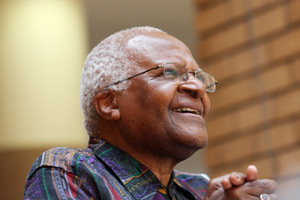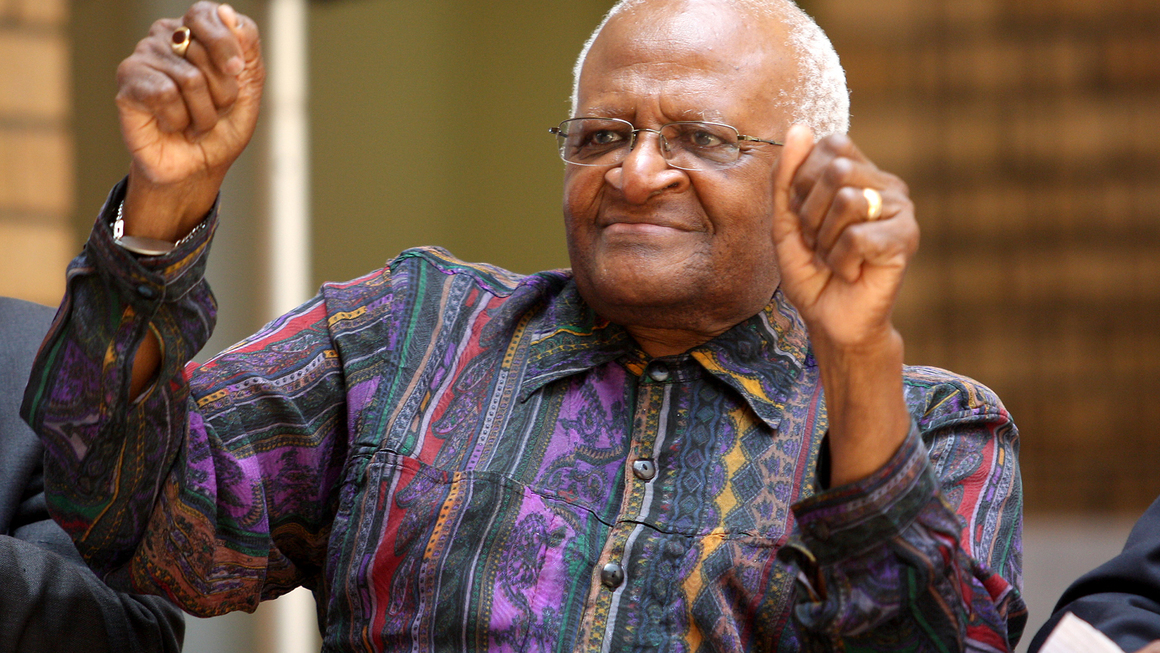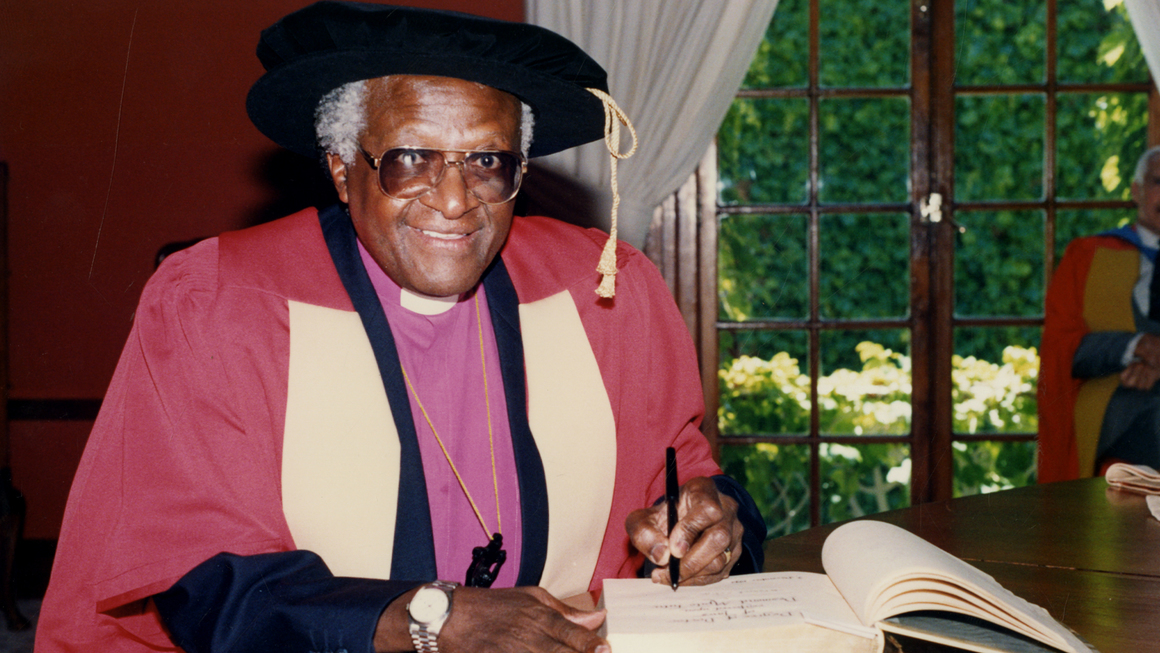All South Africans damaged by apartheid
14 December 2009
Apartheid damaged the humanity of all South Africans, black and white, said Archbishop Emeritus Desmond Tutu at the recent Beyond Reconciliation Conference round table, organised at UCT.
Tutu said one of the dangers of the post-apartheid society is that South Africans did not recognise that they had been damaged by apartheid.
"Maybe we haven't got to the point of dealing with that," he said, pointing to "instances of poverty that are unacceptable, with Government ministers buying expensive cars when there are people going to bed hungry in this beautiful land".
However, in response to a question by sociologist Professor Deborah Posel, Tutu was emphatic that the Truth and Reconciliation Commission, which he chaired, had been successful in the approach it adopted of moving the country towards healing from its apartheid past.
"If you believe in Ubuntu - that my humanity is bound up in your humanity, whether I like it or not - then I can't just stand by and cogitate. And mercifully for us, most people behave that way. It's just that these others capture the headlines." Author and former TRC journalist Antjie Krog said the world struggled to understand the philosophical underpinnings of South Africa's reconciliation process because of the "dominant post-Holocaust discourse".
"At the end of the 20th century, another way of dealing with the injustice of the past has been put on the table by the black people of this country."
She said that, by forgiving white South Africans, blacks had placed an imperative on whites to change, but whites had failed to accept this.
During the conference, Tutu received the Fetzer Prize for Love and Forgiveness, which he was awarded jointly with the Dalai Lama, for facing, over 50 years, "with great courage, a world that is weary of being in the grasp of fear and violence".
Deputy Vice-Chancellor Professor Thandabantu Nhlapo applauded the "hugely important vision" of the Fetzer Institute, which sponsored the conference, in "infusing back into individual lives and community life the ideas of love and forgiveness and reconciliation".
 This work is licensed under a Creative Commons Attribution-NoDerivatives 4.0 International License.
This work is licensed under a Creative Commons Attribution-NoDerivatives 4.0 International License.
Please view the republishing articles page for more information.
Archbishop Emeritus Desmond Tutu: 1931–2021
On Sunday, 26 December 2021, the University of Cape Town learned of the passing of Archbishop Emeritus Desmond Tutu, 90. We say goodbye to a man who taught us the power of joy to fight injustice and evil.
“Archbishop Emeritus Tutu, as he graciously aged, never lost his vision for a just and free South Africa.”
– Archbishop Emeritus Njongonkulu Ndungane
Stories from the UCT archives

It took UCT seven years to award the second Chancellor's Award for Outstanding Leadership in Africa - a reminder not only of the prestige of the accolade, but also of how few and far between worthy recipients have been.
12 Dec 2011
Caught up in the demands of their studies, students are often slow to volunteer for extra-curricula activities. To counter this, the university's student leadership hosted a week-long drive to foster a sense of social responsibility among their peers.
05 Sep 2011
In his valedictory lecture at UCT's medical school on 13 February, Professor Solomon Benatar of the Department of Medicine in the Faculty of Health Sciences, stated that the health of whole populations - in South Africa and globally - is <i>the</i> major crisis and challenge for humanity in the 21st century.
20 Feb 2008
With workmen in the background reminding guests of the newness of the hosting Wolfsohn Pavilion, the mood at the IIDMM headquarters was festive last Wednesday as Archbishop Emeritus Desmond Tutu and his wife Leah arrived to open an HIV centre there named in Tutu's honour.
09 Feb 2006








































